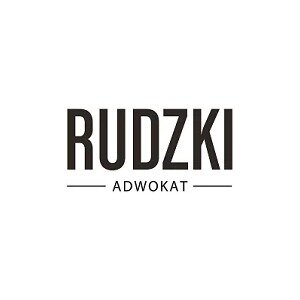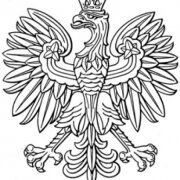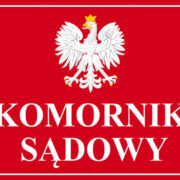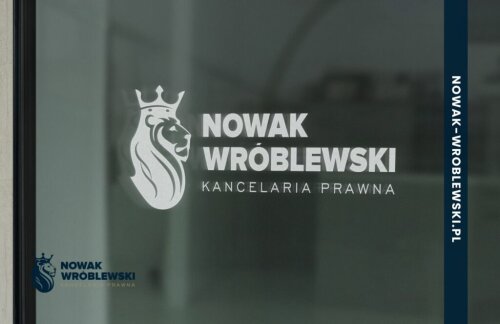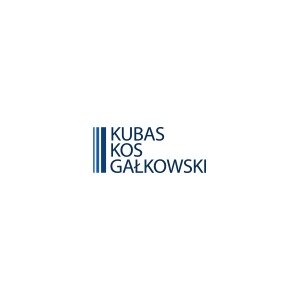Best Funds & Asset Management Lawyers in Poland
Share your needs with us, get contacted by law firms.
Free. Takes 2 min.
Or refine your search by selecting a city:
List of the best lawyers in Poland
About Funds & Asset Management Law in Poland
Funds and asset management law in Poland refers to the legal framework that governs the creation, operation, and supervision of investment funds and the management of assets held within those funds. This sector has grown significantly in recent years, as more individuals and institutions seek opportunities to invest in diverse portfolios. The legal aspects cover the formation of investment funds, licensing requirements for management companies, investor protection, reporting obligations, as well as risk assessment and compliance with EU and national regulations. The Polish Financial Supervision Authority (KNF) is the primary regulatory body overseeing this sector.
Why You May Need a Lawyer
Navigating funds and asset management in Poland can be complex due to a mix of local and European Union regulations. You may need legal assistance for the following reasons:
- Setting up an investment fund or asset management company in Poland
- Ensuring full compliance with KNF and EU regulations
- Preparing and reviewing contractual documentation related to asset management
- Assisting with licensing procedures and regulatory filings
- Resolving disputes between investors and management companies
- Advising on due diligence and risk management methodologies
- Guidance with cross-border investments and structuring
- Understanding tax implications for various fund structures
- Dealing with anti-money laundering and data protection requirements
- Handling mergers, acquisitions, or liquidations of funds and management companies
A lawyer can provide vital support at all stages, from initial fund creation to day-to-day compliance and dispute resolution.
Local Laws Overview
Funds and asset management in Poland are governed mainly by the Act on Investment Funds and Management of Alternative Investment Funds, along with relevant European Union regulations such as UCITS and AIFMD directives. Key aspects include:
- Types of investment funds: Polish law recognizes various fund structures, including open-ended, closed-ended, specialized, and alternative investment funds.
- Licensing: Fund management companies must obtain appropriate licenses from the Polish Financial Supervision Authority (KNF).
- Investor protection: Laws require transparent disclosure of risks, fees, and investment strategies, along with ongoing reporting obligations.
- Corporate governance: Management companies must comply with strict governance and risk management procedures.
- Taxation: Investment funds may benefit from favorable tax treatment, but special rules apply based on fund type and investor profile.
- Cross-border activity: Polish law aligns with EU directives, enabling some funds registered in other EU countries to operate in Poland, and vice versa.
- AML and KYC: Asset managers must adhere to anti-money laundering and know-your-customer regulations to prevent financial crime.
Keeping up to date with changes to both national and EU regulations is crucial, given the industry’s dynamic and highly regulated nature.
Frequently Asked Questions
What types of investment funds are available in Poland?
Poland offers open-ended investment funds (fundusz inwestycyjny otwarty), closed-ended investment funds (fundusz inwestycyjny zamknięty), specialized open-ended funds, and alternative investment funds. Each type has its own regulatory requirements and investment strategies.
Who regulates the funds and asset management sector in Poland?
The Polish Financial Supervision Authority (Komisja Nadzoru Finansowego, or KNF) is responsible for overseeing the funds and asset management industry in Poland, ensuring compliance with both domestic and EU law.
What are the licensing requirements for starting an asset management company in Poland?
An asset management company must obtain a license from the KNF, meet specific capital requirements, implement risk management systems, and have qualified management staff. The process includes detailed documentation and regulatory scrutiny.
Are foreign investment funds allowed to operate in Poland?
Yes, foreign funds, especially those from other EU member states, can operate in Poland subject to regulatory requirements. They must notify the KNF and comply with Polish laws on marketing and investor protection.
What tax rules apply to investment funds in Poland?
Investment funds in Poland often benefit from exemptions on corporate income tax, though taxation may apply at the investor level. Specific rules depend on the fund structure and the type of investor.
How are investors' interests protected by law?
Investors are protected through strict disclosure requirements, fiduciary duties for asset managers, prudential regulations, and the supervision of the KNF. There are also mechanisms for complaints and dispute resolution.
What is the difference between a UCITS and an AIF in Poland?
UCITS funds adhere to a standardized set of EU rules intended for retail investors, allowing them to be marketed across the EU. Alternative Investment Funds (AIFs) are aimed at professional or institutional investors and are subject to a different regulatory regime.
Can individuals invest directly in Polish funds?
Yes, both individuals and institutions can invest in Polish funds, subject to the specific fund’s requirements regarding minimum investment amounts, investor eligibility, and documentation.
What are the reporting obligations for funds and asset managers?
Funds and asset managers must provide regular reports to the KNF, disclose information to investors on performance and risks, and comply with transparency requirements set by both Polish and EU law.
Do I need a legal advisor to invest in or manage a fund?
While not always mandatory, having a legal advisor is strongly recommended to ensure compliance with complex legal requirements, optimize fund structure, and protect your interests whether you are an investor or managing a fund.
Additional Resources
If you need further information or assistance regarding funds and asset management in Poland, consider consulting the following:
- Polish Financial Supervision Authority (KNF) - the main regulatory authority overseeing the sector
- Ministry of Finance - responsible for fiscal policies and regulations affecting funds
- Polish Chamber of Fund and Asset Management - a professional association that provides industry news and guidance
- Public legal information portals and government publications on investment law
- Experienced law firms specializing in financial and investment law
Next Steps
If you require legal assistance with funds and asset management in Poland, consider the following actions:
- Identify and list your specific needs or challenges, such as fund formation, compliance, or dispute resolution
- Gather all relevant documents, including contracts, fund prospectuses, and communications with regulatory authorities
- Research lawyers or law firms with expertise in funds and asset management law in Poland
- Arrange initial consultations to discuss your situation and understand the legal support available
- Evaluate proposed strategies, fees, and the lawyer’s experience in similar matters before making a decision
- Stay informed by following updates from KNF and professional organizations
Seeking professional legal advice early can help you avoid costly mistakes and ensure your investments or management activities comply with all applicable laws in Poland.
Lawzana helps you find the best lawyers and law firms in Poland through a curated and pre-screened list of qualified legal professionals. Our platform offers rankings and detailed profiles of attorneys and law firms, allowing you to compare based on practice areas, including Funds & Asset Management, experience, and client feedback.
Each profile includes a description of the firm's areas of practice, client reviews, team members and partners, year of establishment, spoken languages, office locations, contact information, social media presence, and any published articles or resources. Most firms on our platform speak English and are experienced in both local and international legal matters.
Get a quote from top-rated law firms in Poland — quickly, securely, and without unnecessary hassle.
Disclaimer:
The information provided on this page is for general informational purposes only and does not constitute legal advice. While we strive to ensure the accuracy and relevance of the content, legal information may change over time, and interpretations of the law can vary. You should always consult with a qualified legal professional for advice specific to your situation.
We disclaim all liability for actions taken or not taken based on the content of this page. If you believe any information is incorrect or outdated, please contact us, and we will review and update it where appropriate.
Browse funds & asset management law firms by city in Poland
Refine your search by selecting a city.




